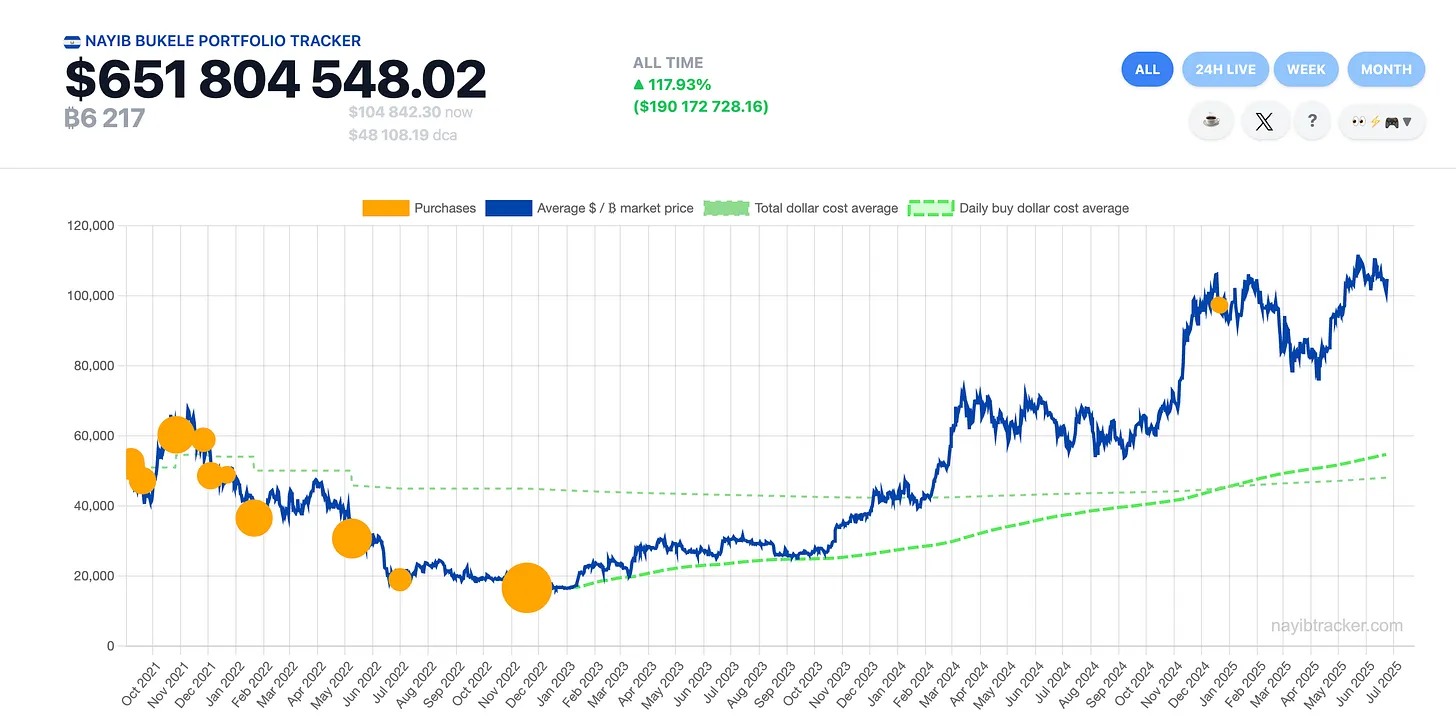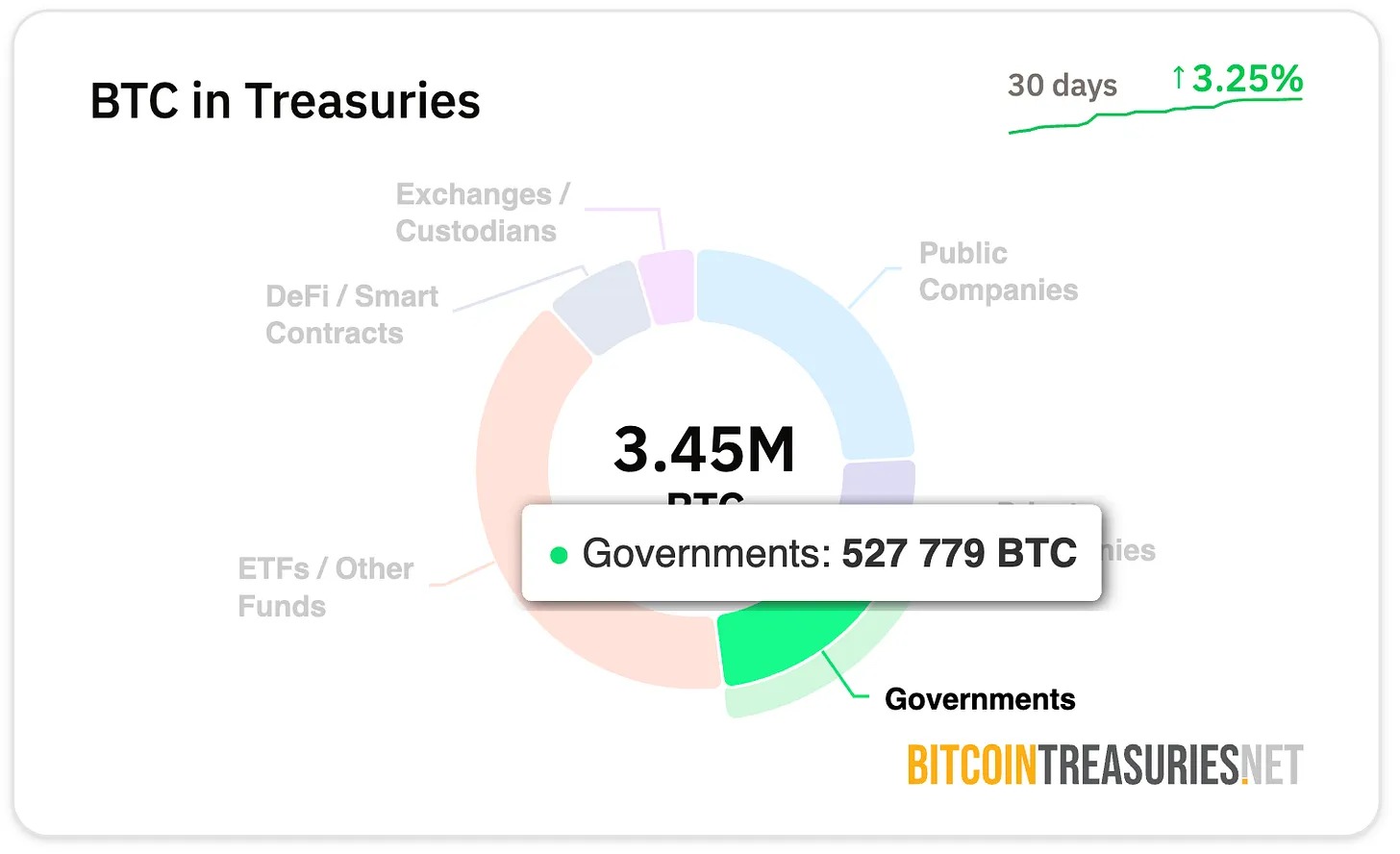Written by: Thejaswini M A
Translated by: Block unicorn
Preface
On May 28, the Minister of Blockchain and Cryptocurrency of Pakistan announced at the Bitcoin 2025 conference in Las Vegas that they have established a strategic Bitcoin reserve.
This country, which declared "cryptocurrency will never be legal" a few years ago, suddenly made a 180-degree turn, promising never to sell their Bitcoin holdings. Minister Bilal Bin Saqib stated: "The Bitcoin wallet of this country is not for speculation or hype, we will hold these Bitcoins and never sell them."
Not only Pakistan, but Ukraine also hopes to incorporate cryptocurrency into national reserves.
Brazil is also considering allocating 5% of its foreign exchange reserves to Bitcoin.
We are witnessing the rise of a strategic Bitcoin economy, with countries actively adopting Bitcoin as a modern treasury tool.
So is this driven by opportunity or necessity?
This pattern has become impossible to ignore. Since the Trump administration expressed support for a US strategic Bitcoin reserve in March 2025.
Ukraine, still in war, submitted Bill No. 13356 to its parliament on June 11, allowing its central bank to incorporate cryptocurrency into national reserves.
Brazil followed closely with the "RESBit" proposal, potentially allocating up to 5% of its foreign exchange reserves to Bitcoin. Even the mayor of Panama mysteriously hinted at a "Bitcoin reserve" after meeting with El Salvador's Bitcoin advocates in May.
Then there's El Salvador, a prime example of this movement. Despite signing a $1.4 billion loan agreement with the International Monetary Fund (IMF) in December 2024, which clearly discourages further Bitcoin accumulation, they continue to quietly purchase Bitcoin daily. Since the agreement, they have added 240 BTC, with President Bukele's government maintaining "technical compliance" through what the IMF calls a "flexible interpretation".
They are finding creative ways to continue buying Bitcoin while maintaining IMF fund flow.

All-In Strategy
These countries are following what I call an "all-in strategy" - strategically betting on emerging financial technologies that show potential when traditional economic policies stagnate.
Pakistan has allocated 2000 megawatts of power for Bitcoin mining and AI data centers, turning its power grid into a cryptocurrency casino. The minister announced: "We welcome all miners to Pakistan," as if foreign miners using electricity could solve economic problems.
The reasoning sounds compelling: Bitcoin's limited supply can hedge against inflation, decentralization provides independence from traditional finance, and recent performance looks like a magical economic bullet.
When Pakistan talks about "100 million unbanked people" and cryptocurrency helping them "break economic layers", it represents a genuine policy response to financial inclusion that traditional banking has yet to address.
These countries are making Bitcoin the core of their economic strategy.
[The translation continues in the same manner for the rest of the text...]
Developing Countries Already Know
Although the BTC reserves of Pakistan and Ukraine seem to be announced suddenly, they actually follow a strategy that has been quietly verified in developing countries for years. The motivations are rooted in the economic realities these countries face every day.
When the purchasing power of the local currency continues to decline, BTC's fixed supply is no longer just a technical feature, but a lifeline. Countries experiencing long-term inflation have seen that citizens naturally tend to use BTC as a store of value because the traditional monetary system cannot provide the stability they need.
Populations in Nigeria, Kenya, Vietnam, and other developing countries have already accepted BTC. When governments can print local currency indefinitely, an asset with a total supply cap of 21 million units begins to look like sound monetary policy.
Traditional banking systems in developing countries often exclude large populations due to document requirements, minimum balance thresholds, or infrastructure limitations. BTC does not require your credit score or maintaining a minimum balance. You only need an internet connection and a mobile phone.
Those excluded from traditional financial services have discovered they can participate in global commerce, receive remittances, and build savings through crypto platforms. BTC provides financial services to those underserved by traditional banks.
Many developing countries implement strict capital controls, limiting citizens' ability to access foreign currency or transfer funds internationally. BTC operates beyond these restrictions, providing a pathway to global financial markets that traditional systems cannot offer.
El Salvador's Remittance Case: Suppose El Salvador receives about $10 billion in remittances annually, with traditional services charging an average of 10% fees, meaning $1 billion flows to intermediaries like Western Union and MoneyGram instead of households in El Salvador.
By using BTC and stablecoins to reduce transfer fees to 2-3%, the same remittances would only cost $200-300 million in fees—potentially saving $700-800 million annually, which could directly enter the local economy. For a country with a GDP of about $32 billion, this is equivalent to preserving over 2% of total economic output instead of losing it to transaction costs.
BTC-based transfers can significantly reduce these costs, meaning more funds can truly reach families in need.
The enterprise balance sheet trends we now see are actually an acknowledgment by institutions of what individual users in developing countries discovered years ago: when traditional financial options are limited or expensive, BTC is a practical financial infrastructure, not "speculation".
Our Perspective
The risk is worth noting.
Of course, this strategy is not without risks and deserves our attention.
As James Butterfill pointed out, BTC's 165% annualized return since 2009 makes it quite attractive. But this performance occurred during an unprecedented period of monetary expansion and risk appetite. What if this environment changes?
If BTC's correlation with traditional markets increases during major economic recessions as in the past, these reserves may not provide the diversification benefits countries expect. Assets meant to hedge systemic risk might instead amplify risk.
There are also concentration risk factors. If every struggling economy follows the same strategy, we might see a situation where the countries most in need of stability are also the most vulnerable to crypto volatility.
However, the first countries adopting BTC reserves are positioning themselves at the forefront of monetary transformation, which could define the next decade. If this trend continues and BTC proves its resilience in economic stress tests, early adopters like El Salvador, Pakistan, and Ukraine will establish strategic advantages in digital asset holdings and blockchain infrastructure.
The regulatory environment seems increasingly supportive of this trend, with the US committed to its strategic BTC reserves and other major economies exploring similar frameworks. Widespread institutional adoption will not cause systemic risk but will instead validate BTC's status as a legitimate reserve asset and create network effects that make these early strategic decisions appear forward-thinking.







